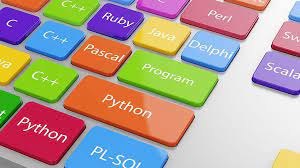Programming courses are a series of classes that teach students various aspects of programming. These courses can be a great way for programmers of all skill levels to learn new skills . If you're interested in becoming a programmer or want to build new skills as one, learning about various types of programming courses can help you decide on which ones are appropriate for you. In this article, we discuss what programming courses are and list the types of programming courses that can help new programmers advance in their careers.
What are programming courses?
Programming courses are a series of classes that aim to teach general or specific aspects of programming. Their purpose is usually to help aspiring or entry-level programmers get a better understanding of programming in general or a specific aspect of programming, such as web development, coding, debugging or database design. Some common types of programming courses are:
General programming: These teach the basic concepts of computer programming and are usually an appropriate place to start for those who are completely new to the field.
Programming languages: These courses cover specific programming languages, starting from basic concepts and gradually advancing to more complex ones.
Programming uses: These usually require some background in a programming language and computer science and focus on a single aspect of technology, such as security systems, neural networks or graphics.
Courses that focus on a niche aspect of programming: These courses teach students how to use a specific system or methodology, such as developing special engineering systems or programming for a specific type of mobile device.
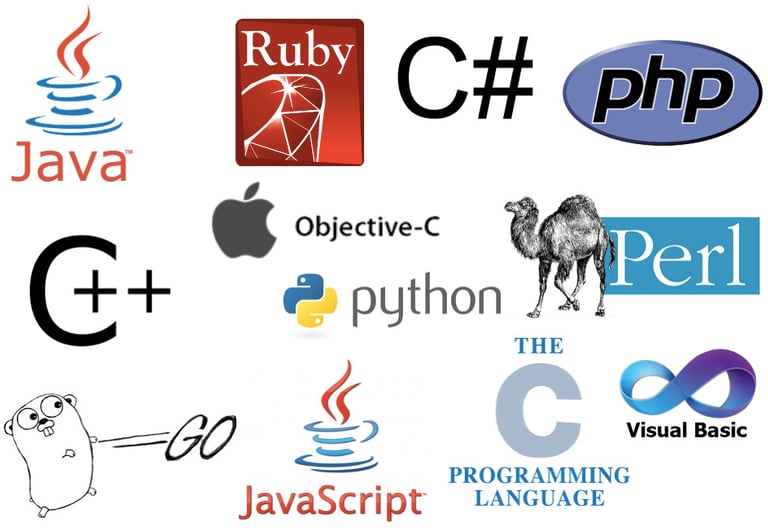

20 types of programming courses for new programmers
Here are 20 examples of programming courses to help you decide if this is a topic you might be interested in:
1. Computer programming introductory courses
Programming courses that teach basic concepts of software development are generally appropriate for those who are completely new to programming but would like to learn it. These types of courses usually teach basic concepts like objects, control structures and simple data structures. Some classes might also have a practical component, in which students learn how to solve basic programming challenges.
2. Software development and design courses
Students who have a basic understanding of a programming language can take software development courses to learn how to create their own software programs. These courses generally include lessons on how to design various functional aspects of an app, implement them into the final product, test them for bugs and modify them to improve their functionality. Students might also learn to use specific tools to develop their software, like code bases and libraries, integrated design environments and system build tools.
3. Computer architecture courses
These courses teach students the basics of computer architecture, including system design, computer organization and machine language. Some specific aspects that these courses generally focus on are integers, scaled and floating point binary arithmetic, Boolean algebra and the functions of different types of memory. The purpose of an entry-level computer architecture course is usually to provide students with specialized knowledge of computer hardware and software structure.
4. Operating systems courses
These courses teach students the fundamental principles of operating systems, such as Windows, macOS® and Linux. Besides giving students an overview of the structures behind modern operating systems, these courses also usually discuss computer history, operating system components and more complex aspects, like file input/output and memory management. Some operating systems courses also have lessons dedicated to system-related security issues.
5. Artificial intelligence courses
These courses teach the basic concepts of artificial intelligence and explain how software developers use these concepts to enhance adaptive systems and video games. They usually introduce students to elements like neural networks, deep learning, machine learning and data science. Artificial intelligence courses also usually teach students what they can realistically use AI for and how it can function in their work.
6. Machine learning courses
These courses introduce students to a specific application of artificial intelligence, which allows a machine to learn from large amounts of data without specific human input. As opposed to traditional programming, which typically aims to resolve an issue by using a pre-defined set of rules or logic, machine learning seeks to build the model or logic based on input data. Besides programming, machine learning is useful in other fields, such as video game design and marketing.
7. Data science courses
These courses typically introduce students to basic aspects of data science, which is the science of examining structured and unstructured data and drawing meaningful conclusions from it. Data science courses usually include concepts from adjacent fields, such as machine learning, data engineering, business intelligence and business analytics. The ability to analyze large amounts of data can be a useful skill in most business domains.
8. JavaScript courses
These courses introduce students to JavaScript, which is a fundamental high-level programming language for client-side website building and design. They usually discuss concepts like JavaScript data types, variables and build-in methods. They also help students understand how they can use them to control a program's flow. Most courses also have a practical component, in which students learn how to build basic interactive websites, games and other applications using JavaScript.
9. Python courses
Taking a basic Python course can help you understand this programming language's basic elements and how you can use it for coding. Besides fundamental concepts, most Python courses include elements like data structures, object-oriented programming, testing, debugging and array implementation. Besides being appropriate for programming beginners who want to learn how to develop software using Python, these courses can also help those who want to develop websites or work as data scientists.
10. Java fundamentals courses
These courses introduce students to Java, a commonly used programming language for web platforms and applications. They usually cover fundamental concepts, like variables, strings, arrays, loops, classes, methods and objects. Learning the basics of Java can help you develop your programming career, as Java's flexibility allows you to write code that's compatible with almost any machine.
11. Kotlin courses
These courses introduce students to basic concepts of Kotlin, a programming language that programmers can use with Java that supports all functional programming languages. Students generally learn how to use Kotlin to build web and desktop applications, develop server-side applications and create mobile apps. Although learning how to use Kotlin can be useful for beginners, some prior experience with another programming language, especially Kava, may be helpful for rapid advancement.
12. C and C++ courses
These courses introduce students to C and its enhanced version, C++, which are the foundation for other modern languages, such as Java and JavaScript. C is one of the oldest programming languages still in use and learning it, along with C++ can help you build high-performance applications that are stable enough to function as commercial products. Such apps are also compatible with a wide variety of platforms, meaning that learning C and C++ can lead to career opportunities in multiple tech subfields.
13. Ruby courses
These courses introduce students to Ruby, which is a programming language that is easy to learn and is highly useful. It also teaches the basics of Ruby on Rails, which is a server-side web application framework written in Ruby. This language's accessibility, flexibility and usability make it very popular as a learning tool for those who are completely new to programming.
14. R courses
These courses introduce students to R, which is an open-source language that programmers generally use for processing statistical information. Students typically learn to use R to build applications that can process both structured and unstructured data and interface with multiple databases. Although R is usually more difficult to learn than other programming languages, it can still be a starting point for programming beginners with solid mathematical knowledge.
15. C# courses
These courses help students learn the basics of C#, which is a programming language with widespread use, mainly for Windows, Android and iOS applications. Taking a C# course can help you learn how to use it even if you lack any prior coding knowledge and can improve the chances of you getting an entry-level programming job. Also, due to its popularity and usability, you can use a basic C# course to help you get an advanced coding job at a major tech company.
16. Swift courses
These courses introduce students to Swift, which is a programming language that's mostly used for building iOS and macOS apps. It requires less coding knowledge than other popular languages and is generally more intuitive, making it an appropriate choice for students with no programming experience who want to pursue a career in the field. Completing a Swift course as a beginner can help you gain the knowledge and skills to build basic apps and create an app portfolio that you can use to apply for entry-level programming jobs.
17. HTML courses
These courses introduce students to HTML, which is the primary language for web development. These courses might be useful for those who want to learn how to create a website on their own and add complex elements to it, like tags, hyperlinks, page navigation buttons, lists, tables and forms. Learning HTML typically only requires basic computer knowledge, making it appropriate for professionals from other fields who want to learn how to develop webpages to use in their current profession, in their personal life or for a career change.
18. Android development courses
These courses teach students how to build Android applications with Android Studio, which is the official integrated development environment for the mobile operating system. They also include basic programming concepts in various languages that you can use to build Android software, like Java and Kotlin. Besides giving you the skills and knowledge to build your own Android apps, entry-level Android development courses also teach you how to stay up to date with the latest developments, as Android is constantly changing and updating.
19. Angular 6 courses
These courses introduce students to Angular 6, which is a widely used framework for building the client side of various applications. Students usually learn how to build client applications by using Angular to troubleshoot common application errors. Most Angular 6 courses have a theoretical component, where students learn about concepts like components, directives and routings, and a practical component where they build their own apps under an instructor's supervision.
20. CSS courses
These courses help students learn the basics of CSS, which is a style sheet language that you can use to build visually appealing webpages by determining how web browsers present documents to users, including their style and layout. Students usually learn how to write CSS and use its properties for styling websites. It's usually appropriate for web design and HTML beginners who want to learn how to apply CSS to improve their webpages.
You will learn 23 Best Computer Programming Courses from our Institute to Get a Job .
1. Python
2. R and Software Development
3. Fundamentals of Java Programming
4. Web Development or Full Stack Developer
5. Google Cloud Platform Architecture
6. JavaScript
7. Angular 6
8. Redux and React
9. Android N Developer
10. iOS 11 and Swift Developer
11. Node.js Developer
12. C++ and Unreal Engine Developer Course
13. Master Jenkins
14. Docker Mastery
15. Cyber Security Course
16. M.Sc. in Computer Science
17. PG Diploma in Software Development Specialisation in Blockchain
18. Executive Program in Blockchain Technology Management
19. PG Certificate Program in Big Data & Analytics
20. PG Program in Big Data Engineering
21. Master of Science in Data Science
22. PG Diploma in Machine Learning and AI
24. Advanced Certificate Program in Machine Learning
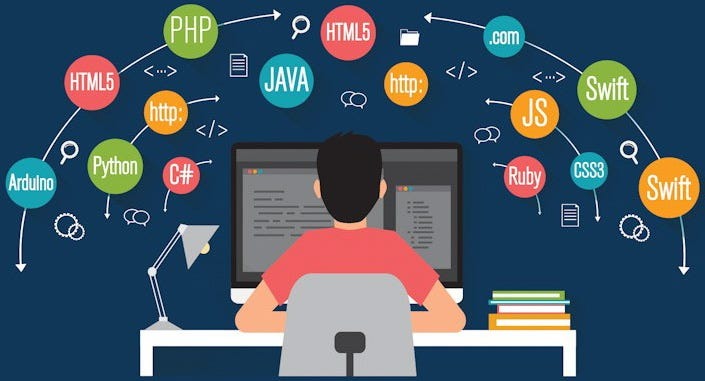

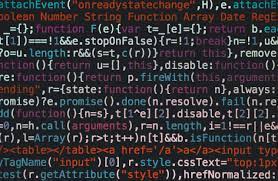

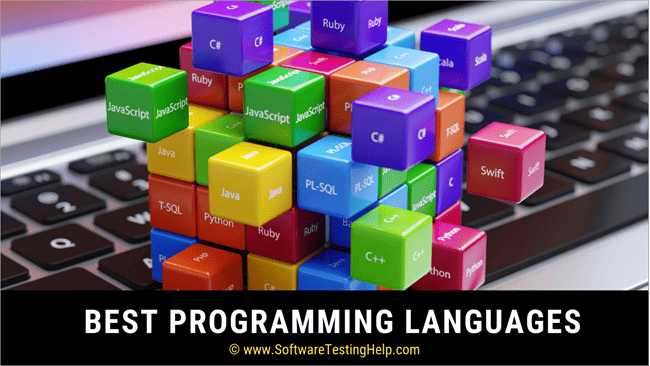

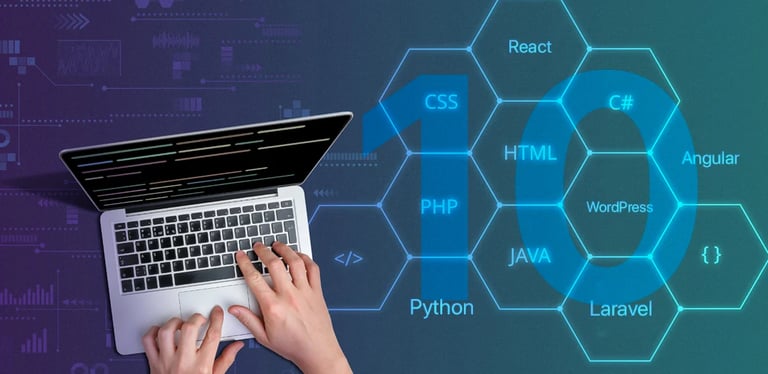

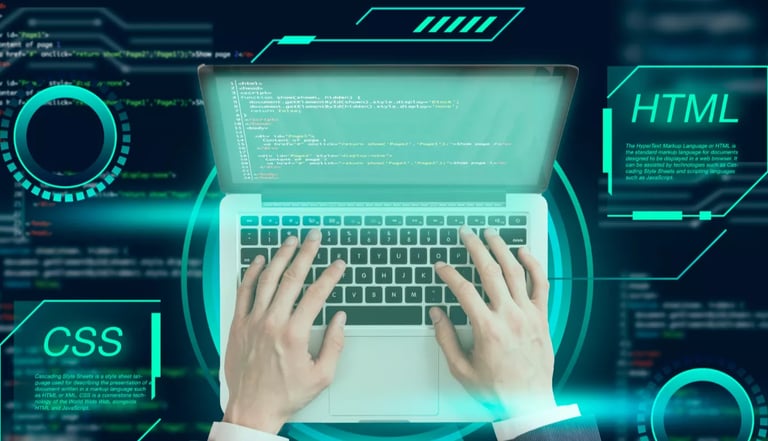

Programming courses
